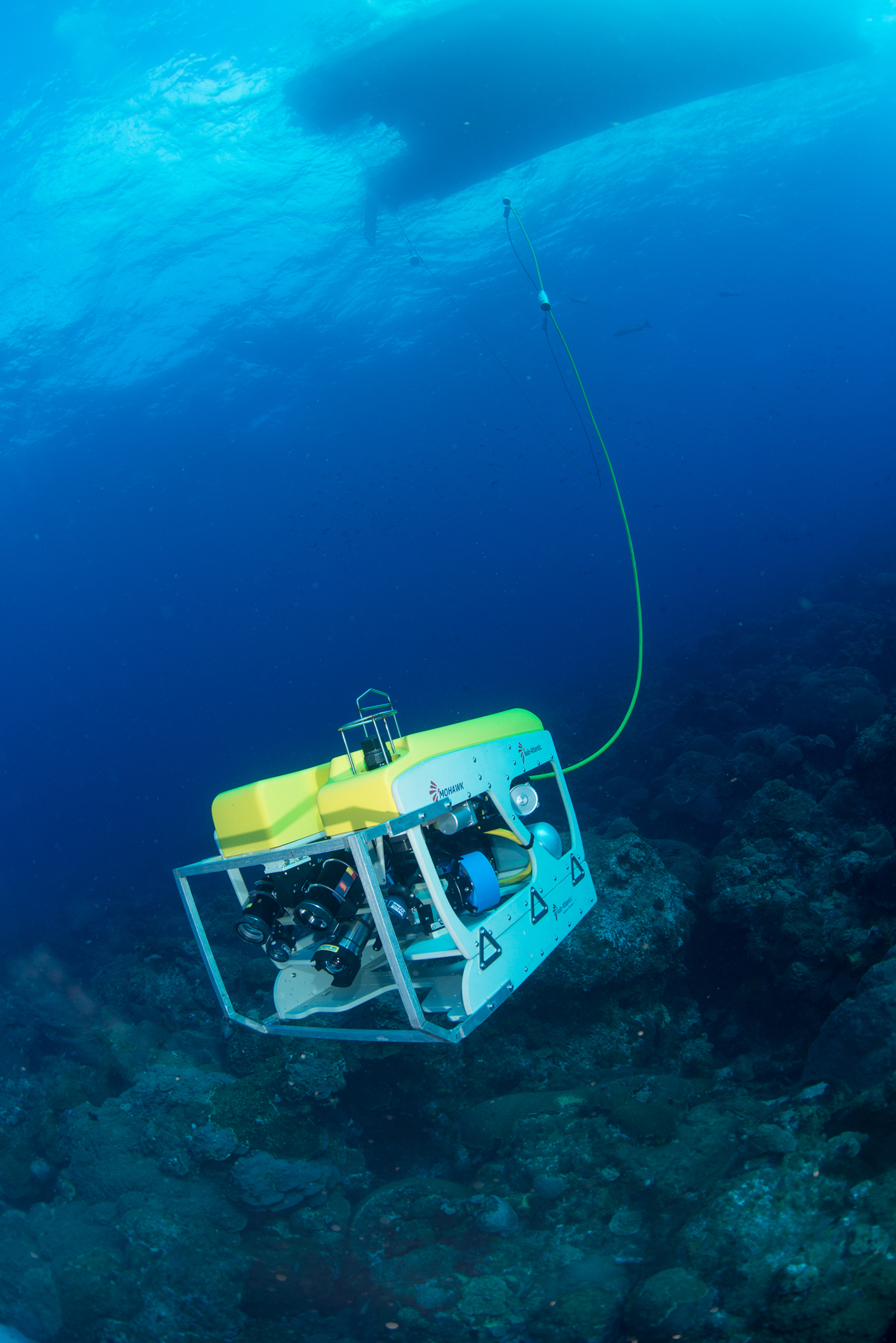NCCOS and partners are embarking on a series of science cruises to support four long-term restoration projects in the Gulf of Mexico. This effort will advance our ability to understand, manage, and restore mesophotic and deep benthic communities impacted or damaged by the 2010 Deepwater Horizon oil spill.

Mesophotic and deep benthic communities are complex ecosystems which a variety of corals, fish, crustaceans, and sponges call home. There are many challenges to restoring these communities because there is limited information about abundance and distribution within them, and limited scientific experience restoring them.
After nearly two years of planning and design, scientists will conduct multiple expeditions in 2022, totaling almost 200 days at sea. These expeditions will map, survey, and sample deep benthic habitats in priority areas across the north-central Gulf of Mexico. Scientists will conduct high-resolution seafloor mapping, visual surveys for habitat assessment, deploy ROVs for coral sampling. This cruise season is the first of several in a five-year field and lab-based implementation stage.
To restore these seafloor habitats and communities, scientists first need to know where they are located. High resolution seafloor mapping will inform these efforts, while collecting information to document and better understand the distribution of coral, fish, and other organisms that make up these seafloor habitats.
The team will revisit sites impacted by the oil spill, establishing reference areas, and beginning long-term monitoring of changes over time to better understand the resiliency of these communities—how they bounce back from damage or pollution.
Restoring the coral species injured by the oil spill requires development of new techniques and better understanding of their biology, genetics, ecology, and health. Scientists will collect coral samples from areas adjacent to injury sites to support lab-based nurseries and to develop effective ways to grow, propagate, and transplant deep-sea corals.
Project implementation is led by Federal Trustees at NOAA and the Department of the Interior. Due to the extent of the damage caused by the Deepwater Horizon oil spill and the complexity of the habitats, these activities were developed with significant input from the ocean management and scientific community. Learn more.
